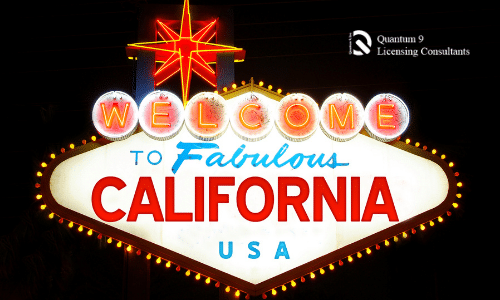California’s cannabis regulation made incredible steps on Sept. 11th, 2015, where a series of bills establishing California’s first-ever statewide systems regulating medical cannabis business were passed. Key provisions of the safety act and cannabis regulation can be found in SB 643, AB 266, and AB 243. The Californa cannabis laws result in the governing of medical marijuana cultivation, testing, distribution, and transporting to its qualified patients. Once received, the current Governor Jerry Brown has 12 days to veto or sign the bills.
What agencies will regulate medical cannabis?
The primary regulating agency would be the Department of Consumer Affairs in California, although many other will play a part in regulation. The newly created BBMR (Bureau of Medical Marijuana) will share licensing authority, oversee the programs, and manage multiple types of business. The DOA, and Dept. of Public Health will also be involved in overseeing the manufacturers and testing labs.
When will these transitions happen?
A formal state-level licensing process is currently scheduled for the 1st of January 2018. Until then, business will operate as usual. After this takes place, businesses will have the option to operate as usual until they receive results on their submitted application. Current agencies involved in the adoption and writing of the rules have until Jan 1st 2017.
Key Provisions
The primary priorities when implementing this will ensure protection for law-abiding employees, businesses, landlords, and other parties involved from civil asset forfeiture and criminal law.
Types of Licenses
Up to seventeen types of licenses will be available. The licenses will be valid on an annual basis, covering plant nurseries, labs, dispensaries, cultivators (inside and outside), plant sizes, and more. Distributors: is a new class of license that will be responsible for business-to-business transport. The goal is to gradually phase out cooperatives and collectives entirely, as the bill does not allow for proper licensing.
They will be able to operate as normal until Jan 1, 2018. The grace period and defense for these parties will remain in effect for up to one year after the business licenses are being used.
Patients Are Able to Grow Their Own
Patients can keep on growing their own medicinal cannabis (with the exception of nearby governments banning individual developments). On the other hand, developed space allocated for growing will be constrained to 100 square feet, and patients will be denied any act of giving or offering the cannabis to someone else without authorization. Parental figures, which are barely characterized under California’s voter-instituted law, could develop for up to five patients and would be constrained to 500 square feet. Note: (Note: California legislation cannot legally amend a voter-enacted law. This limitation will most likely be overturned if it conflicts with Prop.215
The space for cultivation will be capped. Restrictions will be placed on authorized “open-air” cultivators and indoor cultivators.
- Open air: 1 section of land
- Indoor: ½ Section of 1
Labeling and Testing Will Be Required
All cannabis sold to medically approved patients will need to meet specific requirements including but not limited to: contaminants, proper labeling, tamper-resistant packaging of the product, and lastly potency. The local governing authority in order for a business to operate must issue a permit. Local enforcement will be given the option to enforce their own local laws and established state laws, which in turn could lead to taxing business activity.
Allowing Vertical Integration
Although limited, some business may be eligible for multiple licenses. For example: Dispensary owners could also cultivate etc. All business eligible to operate within multiple licenses will be grandfathered in and allowed to operate as such until the year 2026.
Criminal Histories Could Be a Problem
When considering applicants with a criminal history such as felonies, etc. many could be denied. This will occur especially if the offense is related to illegal possession, illegal sales, illegal manufacturing, transportation, cultivation, business function, business, qualifications, and many more Marijuana related convictions.
Deliveries Allowed… Except Where They’re Not.
Larger licensed dispensaries are able to make deliveries to patients in need, however, the local government may not allow local deliveries if they chose to ban in certain ordinances. Although there is no specific license for delivery, shipments through permissible areas will be protected.
Medical Cannabis Tracking
A Track and trace system will be imposed that requires tracking of all cannabis from the earliest sale stages. Patient’s names and medical history will remain private in accordance with HIPAA. Business is not going to be required to maintain a “not-for-profit: status. Anyone can be an investor; there are no California locality requirements.
New Cultivation Standards
Organic medical cannabis will need to adhere to new pesticide standards issues by California’s Dept. of Food and Agriculture. Once rules have been written and implemented, the legislature will be able to change any provisions. A modernization of Cali’s current law has been needed for a long time. Providers, patients, and communities, in general, will be better protected from federal authorities and benefit greatly from a streamline-regulated system. Safe tested medical marijuana will now be available for patients in need. In any case, of course not all the provisions are ideal, BUT, the laws passed by the California lawmakers is a much more reasonable approach to the ever popular marijuana legalization and regulation movement.
For more information on how to get a license in California or to speak to a California Cannabis Consultant, visit https://www.quantum9.net or call 888-716-0404.









2 Comments